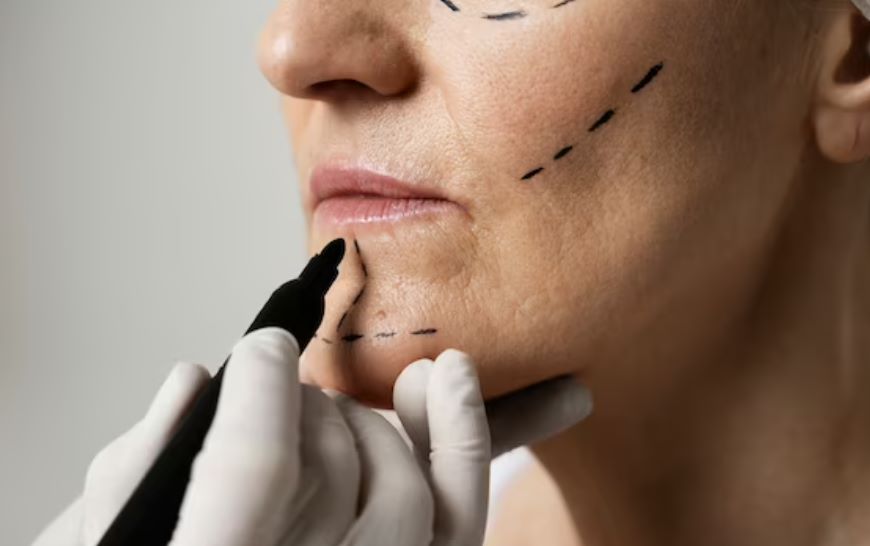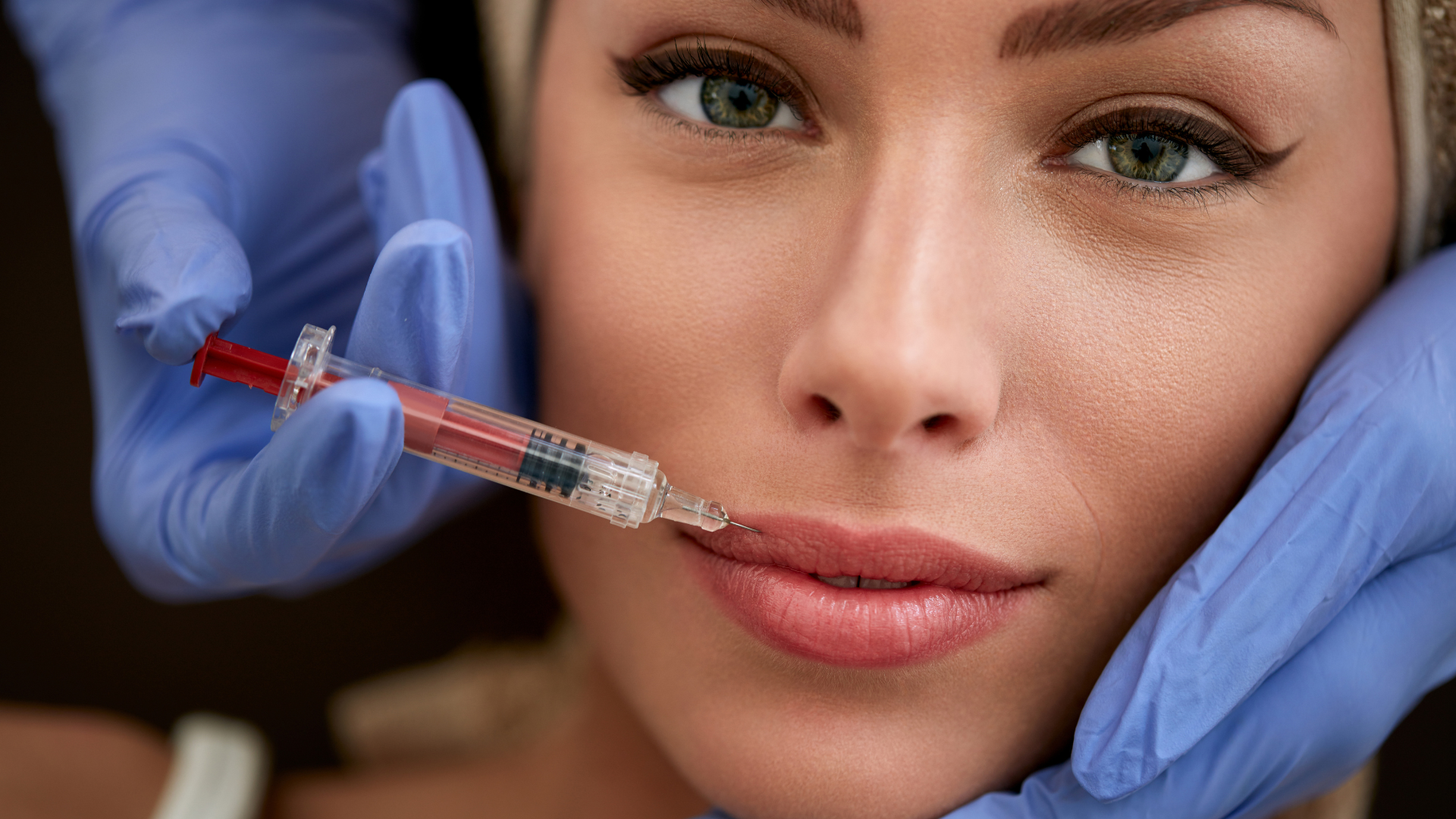Many people in today's society, which places a premium on outward appearances, regard plastic surgery as a means of self-improvement. But plastic surgery can improve more than just one's appearance; it can also significantly affect one's quality of life.
Having confidence in one's physical attractiveness is crucial to enjoying life. Accepting and using plastic surgery is wise because it may do wonders for a person's confidence and sense of well-being.
Plastic surgery has come a long way, and while the thought of it can be scary, there are now many safe and successful options. Cosmetic surgery has come a long way in recent decades, with procedures like rhinoplasty and liposuction becoming commonplace.
Globally, surgeons are using cutting-edge equipment to perform life-changing procedures in as little as a few hours. What happens after plastic surgery, and how might it improve your life now?
Having plastic surgery can boost one's confidence and happiness. It can fix unsightly traits and give the patient a more positive body image, more self-assurance, and a better quality of life.
In this post, we'll talk about how cosmetic surgery can make you feel better about yourself, make your relationships stronger, and make you happier overall.
What Is Plastic Surgery?
Plastic surgery aims to enhance or restore a patient's physical attractiveness, symmetry, or function. Physical features like the nose, breasts, face, and body shapes can all be modified by targeted surgical procedures. Scars from injuries or surgeries can also be removed by plastic surgery. Cosmetic procedures are surgeries that patients voluntarily undergo to enhance their appearance and confidence.
Many perspectives are offered while analysing plastic surgery's pros and downsides. Proponents of plastic surgery say it helps people feel better about themselves by fixing flaws they've always hated and is a net positive. Opponents of cosmetic surgery point to the risks of infection and general anaesthesia as examples of how the procedure can go wrong.
Plastic surgery is a highly individual choice that requires careful consideration of many factors. In the end, it is up to each person to consider the surgery's benefits and drawbacks before deciding whether it is the best course of action for them to take to enhance the quality of their life.
Is Plastic Surgery Right For You?
The primary goal of plastic surgery is cosmetic so that the patient is happier with how they look after the procedure. The result is a rise in confidence, which motivates more positive emotions and actions.
A qualified cosmetic surgeon would look at the patient as a whole, including their mental and emotional health, before deciding whether or not they are a good candidate for plastic surgery.
If you meet the following criteria, you may be a suitable candidate for cosmetic surgery:
- Are a healthy, nonsmoker with reasonable expectations for your surgery's outcome
- lack any diseases that would hinder recovery or raise the likelihood of complications during surgery
- Feel emotionally ready for surgery and aware of the potential dangers
Choosing Plastic Surgery For The Right Reasons
Having increased self-esteem after undergoing plastic surgery is entirely realistic. However, it would help if you were sure that the improper motivations aren't driving your decision to have surgery. Discussing your self-doubts and perceived imperfections with others can be an uncomfortable experience. Surgery might not be a magic bullet for these emotions.
Surgery is not a panacea and should not be used in place of other methods of treating mental health issues. If your appearance has been bothering you or if you have been the target of severe bullying or social harassment, you may benefit from therapy.
To What Extent Can Cosmetic Surgery Enhance One's Quality Of Life?
The patient's background, anticipated results, and existing state can improve plastic surgery's physical and emotional health and quality of life. When someone loses part or all of their body due to a disease or accident, plastic surgery can help them regain it. For some, plastic surgery is as liberating as it is remedial; those who have undergone cosmetic treatments often report increased self-esteem.
While offering many benefits, plastic surgery has its share of risks and potential complications. Many operations have lengthy recuperation periods, and complications may emerge. All surgical procedures have some danger, even though modern plastic surgeons take extra precautions to protect their patients. When deciding whether or not to undergo a procedure, it is important to review the risks and advantages thoroughly.
Although plastic surgery has the ability to improve some patients' quality of life, others may be hesitant to have the procedure due to the possibility of adverse physical or mental effects. Anyone thinking about plastic surgery should talk to a board-certified surgeon about their hopes, fears, and expectations to understand how the treatment might affect their daily life.
Changes in One's Body
In most cases, people get plastic surgery to enhance their appearance. It's a great approach to treating short-term and long-term health issues while boosting a person's sense of well-being and confidence. While some may choose to enhance an already present feature, such as the size of their breasts or the firmness of their thighs, others still may want to minimise the prominence of a facial feature such as their nose or chin.
After undergoing the procedure, plastic surgery patients often report improved psychological and social well-being. Sometimes, patients who previously avoided social situations due to anxiety about their appearance report experiencing the opposite: a surge of self-assurance. In rare cases, these operations can even alleviate the pain of misaligning the body's structural components.
However, there are many who are against plastic surgery because they worry it would make them look generic. Some argue that surgeons should prioritise assisting patients with serious physical defects over those seeking cosmetic improvements. They argue that the primary motivation behind cosmetic surgery is to promote unhealthy ideals of beauty rather than to improve a patient's quality of life.
Some hazards and complications must be considered while making decisions, so it doesn't matter whose camp you fall into. Plastic surgery is a serious endeavour that should only be approached carefully, considering the potential risks and benefits.
The Effects of Plastic Surgery on Individuals and Society
On occasion, though, persons who choose to alter their looks may find themselves the target of unfavourable commentary. This is sometimes the case because people are anxious about the effects of "ideal" or "photoshopped" media depictions. Many people are worried about the effect this will have on the self-esteem of future generations. Concerns about one's physical appearance and the associated mental health issues warrant significant attention. Such thorny problems, however, predate plastic surgery and will continue to exist regardless.
Many people find that their experience with plastic surgery greatly improves them. A person's self-esteem can soar, and their body-related insecurities vanish with the help of successful plastic surgery. It couldn't significantly alter anyone's life. However, it can give one a sense of pride in their physical self that permeates other aspects of their life.
The Positive Effects on One's State of Mind and General Happiness and Well-Being
In addition to the physical process, deciding to get plastic surgery can involve a lot of thought and feeling. Plastic surgery's psychological and emotional outcomes can be improved with the correct strategy and method. However, plastic surgery can result in unnecessary emotional suffering if patients aren't closely supervised.
Potential emotional and psychological benefits of plastic surgery vary widely depending on things, including the individual's pre- and post-operative outlook. Increases in self-assurance and a more positive perception of one's physical appearance are two possible mental benefits of cosmetic dermatology. A patient's self-confidence and sense of well-being can both increase after plastic surgery.
However, the risk of having irrational expectations after plastic surgery must be considered. Patients may be dissatisfied with their surgical outcomes if they are overvalued or have unreasonable expectations of their new appearance. You may feel humiliated, sad, anxious, angry, guilty, or ashamed. Therefore, it is crucial that the patient and surgeon have an open line of communication before surgery to set reasonable expectations for the outcome.
Last but not least, while it's important to be realistic about what might go wrong with any operation, many people report significant improvements in their sense of well-being and confidence after undergoing successful plastic surgery. Consider these gains while weighing the price of plastic surgery against the psychological benefits it can bring.
Patients contemplating plastic surgery can determine if it is in their best interest physically and psychologically by weighing the risks and advantages. In the following paragraphs, we'll discuss how considering these potential downsides and upsides might help you reach the best possible outcome from this procedure.
Plastic Surgery for Asymmetry, Facial and Body Symmetry, and Balance
We all have some degree of asymmetry in our faces and bodies, which could be why you're considering cosmetic procedures. Sometimes, asymmetry is only apparent upon very close inspection.
However, our asymmetry is a striking feature to others. People with atypical feature ratios or body forms can face persistent difficulties in social settings, such as bullying. Reducing the prominence of an unattractive facial feature or other part of the body can help reduce the likelihood of negative attention and stop bullying in its tracks.
Advantages Of Cosmetic Surgery And How They Can Benefit You
Boosted Confidence.
A more positive and optimistic outlook on life is often the result of elective cosmetic surgery.
Healthier living.
Liposuction and abdominoplasty are two cosmetic surgeries that frequently inspire patients to improve their diet and exercise habits.
Reduced Pain.
Breast reduction surgery, for example, has been shown to significantly reduce post-operative pain in the back, shoulders, and neck.
Diabetes risk is reduced.
Reducing body fat helps patients avoid developing insulin resistance.
Enhanced eyesight.
In addition to fixing cosmetic issues, eyelid surgery can treat visual problems like dry eyes and drooping eyebrows.
The Flow of Oxygen Has Been Improved.
Rhinoplasty surgery enhances breathing and oxygen intake by correcting a deviated septum.
Lower Potential for Heart Disease.
Reduced blood pressure and cholesterol levels are just two additional benefits of fat reduction procedures.
Lifespan increases.
A longer and happier life span may be the cumulative outcome of these advantages.
Keeping A Healthy Perspective On Plastic Surgery
As social media grows, so does society's obsession with appearance. Sharing images of oneself has never been simpler than with the help of social media platforms like Twitter, Facebook, and Instagram. More people are considering cosmetic surgery to address their growing preoccupation with appearance. In return, they anticipate feeling more assured in their abilities.
However, surgery is not a silver bullet that will solve your problems. Approaching potential plastic surgery results with a level head and a healthy dose of realism is crucial. Never hope for the unattainable. Ensure you and your surgeon thoroughly discuss the outcomes you hope to achieve.
Conclusion
Plastic surgery is a popular self-improvement procedure that improves symmetry, function, and appearance. It can eliminate scars from injuries and procedures and be performed on the nose, breasts, face, and body contours. Cosmetic operations are voluntary to improve appearance and confidence.
Plastic surgery is personal and involves careful consideration of many issues. A trained cosmetic surgeon will evaluate a patient's mental and emotional health to decide if they are a good candidate for surgery. Patients who match the criteria may qualify for plastic surgery.
Plastic surgery is not a cure-all for mental health issues and should not be utilised alone. Therapy may help a patient who has been bullied or harassed due to their looks.
When someone loses part or all of their body due to disease or accident, cosmetic surgery can improve their physical and emotional health and quality of life. Plastic surgery involves dangers and consequences despite its benefits. Before undergoing a surgery, weigh the risks and benefits.
Plastic surgery is popular for improving looks, alleviating short- and long-term health issues, and boosting confidence. The surgery generally boosts self-confidence and relieves pain, improving psychological and social well-being. However, unrealistic media images may harm future generations.
Despite these concerns, plastic surgery can improve mental health, happiness, and well-being. The pre- and post-operative viewpoint can affect plastic surgery's psychological and emotional effects. Cosmetic dermatology may boost self-esteem and body image.
Plastic surgery can also alleviate facial and body asymmetry, which can cause social issues like bullying. Cosmetic surgery improves confidence, health, pain, diabetes risk, eyesight, oxygen flow, heart disease risk, and lifespan.
People are seeking cosmetic surgery to address their rising fixation with looks as social media grows. Surgery is not a panacea and should be addressed realistically. Discuss your goals with your surgeon and prevent unrealistic expectations.
Content Summary
- Plastic surgery is frequently considered a method of self-improvement in today's society, which places a high value on one's outer appearance.
- Plastic surgery has the potential to improve not only a person's outward look but also their overall quality of life.
- The ability to appreciate one's own physical attractiveness is essential to one's capacity to take pleasure in life.
- Options that are both safe and successful can be found in today's plastic surgery.
- These days, cosmetic surgeries such as liposuction and rhinoplasty are very frequent.
- Surgeons make use of state-of-the-art equipment in order to perform life-altering treatments.
- Plastic surgery has the potential to improve an individual's self-esteem, body image, and general quality of life.
- Surgical enhancement of the appearance can boost one's confidence and overall satisfaction.
- Plastic surgery is performed with the intention of improving a patient's physical appearance, symmetry, or function.
- A person's nose, breasts, face, and even body shape can be altered through the use of cosmetic operations.
- Scars left behind by previous injuries or operations can be eliminated with the use of plastic surgery.
- The decision to have plastic surgery is highly personal and comes with both benefits and risks.
- Patients ought to give significant thought to both the benefits and the negatives.
- Candidates for cosmetic surgery ought to be in good health, free of smoking, and in possession of acceptable expectations.
- Emotional preparedness and an awareness of the potential dangers involved are both crucial.
- The decision to have surgery should never be influenced by unethical reasons.
- Plastic surgery should not be considered a viable alternative to treatment for mental health disorders.
- Plastic surgery has the potential to improve both patients' physical and mental health, in addition to their overall quality of life.
- A successful procedure in plastic surgery can boost one's confidence and make them feel better about themselves.
- Plastic surgery is not without its potential for adverse effects and problems, which calls for serious deliberation before proceeding.
- Concerns have been raised regarding how "ideal" images in the media might influence a person's sense of self-worth.
- Plastic surgery has the potential to improve one's sense of well-being as well as their self-confidence.
- The psychological and emotional benefits vary greatly depending on a person's unique circumstances.
- For optimal happiness after surgery, having realistic expectations is really necessary.
- A successful plastic surgery procedure can bring to improvements in both one's self-confidence and well-being.
- When contemplating whether or not to get plastic surgery, it is helpful to consider both the dangers and the benefits of the procedure.
- Asymmetry in features and bodies might put a person at risk for social problems and bullying.
- Cosmetic operations have been shown to lessen unfavourable attention and bullying.
- Increasing one's confidence, living a better lifestyle, reducing pain, lowering one's risk of developing diabetes, enhancing one's eyesight, improving oxygen flow, reducing one's risk of developing heart disease, and lengthening one's lifetime are all potential benefits of cosmetic surgery.
- An unhealthy preoccupation with one's appearance may be a side effect of social networking.
- Increasing numbers of people are considering plastic surgery as a means of boosting their self-esteem and confidence in their capabilities.
- There are some issues that cannot be remedied by plastic surgery.
- Realistic expectations and honest communication with the operating surgeons are required for optimal outcomes.
Frequently Asked Questions
Plastic surgery primarily aims to enhance or restore physical attractiveness, symmetry, or function. It can improve quality of life by boosting self-confidence, body image, and overall well-being.
Yes, like any surgery, plastic surgery carries risks, including infection and complications. To ensure a safe procedure, choose a qualified, board-certified surgeon, thoroughly discuss your medical history, and follow pre- and post-operative instructions.
Plastic surgery can have positive effects on one's emotional well-being by improving self-esteem and body-related insecurities. However, it's important to have realistic expectations and consider therapy for underlying mental health issues.
Cosmetic surgery can lead to a range of benefits, including boosted confidence, healthier lifestyle choices, reduced pain, lower diabetes risk, improved eyesight, enhanced breathing, lower heart disease risk, and potentially a longer lifespan.
To determine if plastic surgery is suitable for you, consider factors such as your overall health, realistic expectations, emotional readiness, and awareness of potential risks. Consult with a qualified cosmetic surgeon who will evaluate your candidacy based on your individual circumstances.


